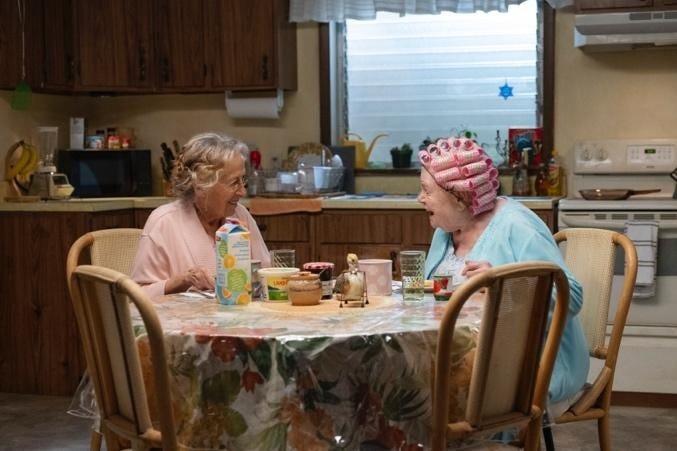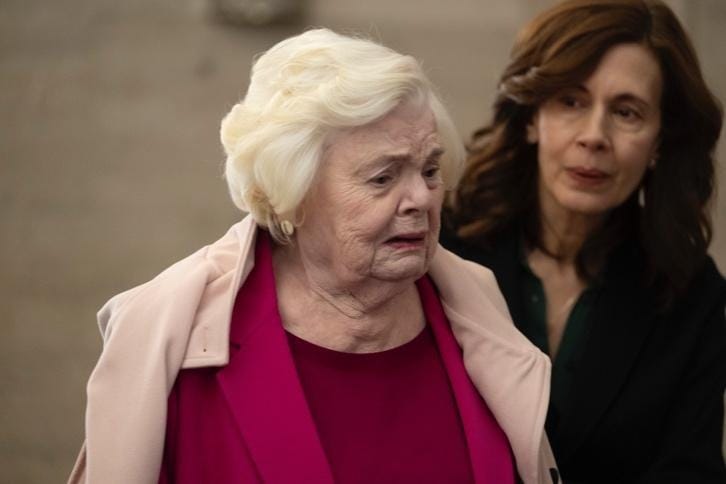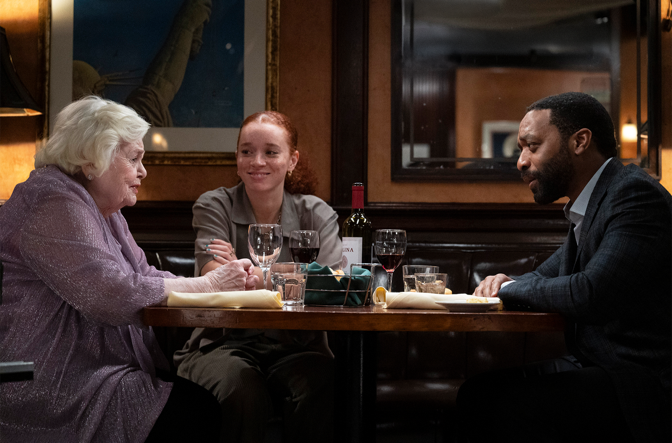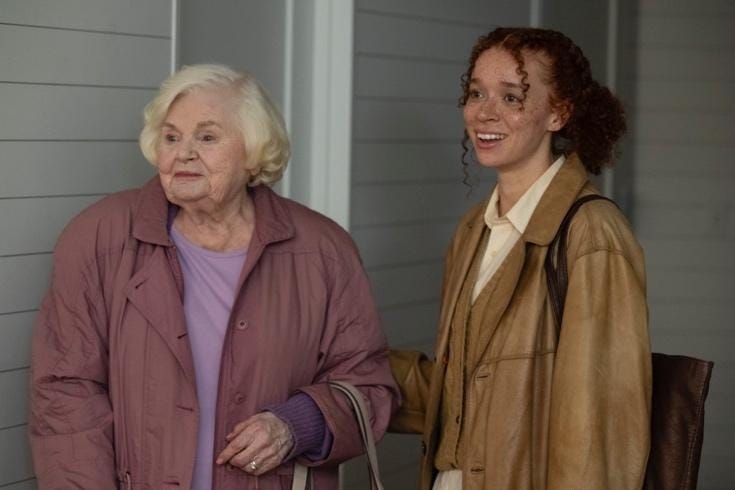June Squibb & Erin Kellyman Beautifully Redefine Chosen Family In “Eleanor the Great.”
I don’t know how many more sunsets I have left, but I am deeply grateful for the one I witnessed while watching Eleanor the Great as part of the 2025 Tribeca Lisboa Film Festival. As I age, nothing becomes clearer than the fact that we never have enough time with the people we love. In this deeply layered film, I am most grateful for artists like Eleanor’s June Squibb (Thelma), who continue doing what they love—telling rich, powerful stories about the human experience.
Written by Tory Kamen (The Mick) and directed by Scarlett Johansson (Marriage Story) in her feature debut, Eleanor the Great is a love story between two best friends, Eleanor and Bessie (Rita Zohar, Lady in White), which—even after seventy years of friendship—feels like it’s cut far too short. When Bessie unexpectedly passes away, Eleanor moves back to New York City after living with Bessie for eleven years. She remains independent, spunky, and full of life, sharing unsolicited opinions at every turn. Moving back in with her daughter Lisa (Jessica Hecht,The Boys) and grandson Max (Will Price, After the Hunt) reignites old tensions. Eleanor and her daughter haven’t lived together for decades, and Eleanor is openly critical of Lisa and her choices. While much of Eleanor’s negativity seems rooted in grief, it also stems from the sacrifices Lisa is unwilling to make because of taking her mother in. Lisa constantly makes Eleanor feel like a burden rather than empathizing with the fact that her mother has been forced to uproot her life after losing her soul sister.
To help Eleanor adjust to a more community-focused lifestyle, Lisa signs her up for what she believes is a support group at the Jewish Community Center—but it turns out to be a Holocaust survivors’ group. When Eleanor steps into that room, everything changes. She decides to share Bessie’s deeply personal Holocaust survival story as her own. She could never have predicted that this lie would become the foundation of her friendship with Nina (Erin Kellyman, Willow), a college student newly interested in journalism—and particularly, Eleanor’s story. What unfolds is a beautiful multigenerational friendship that blossoms amid their shared grief.
Eight months before meeting Eleanor, Nina tragically lost her mother in an accident. Because of the strained relationship between her parents at the time, her father Roger (Chiwetel Ejiofor, Rob Peace) has become distant and emotionally unavailable. This drives Nina to withdraw from her peers. But Eleanor refuses to let her hide. She gives Nina the space to feel her grief in her own way—something Nina never expected. Initially, Nina just wants to connect with Eleanor over her experiences, hoping to feature her in an article and invite her to speak in her class. But Eleanor, knowing her story is a fabrication, resists. When Max stands Eleanor up for Shabbat dinner, she invites Nina instead—and that moment unlocks the start of their remarkable friendship.
This film offers a poignant commentary on transparency, care, and compassion during our hardest times. It reveals what it truly means to listen to others and to be as vulnerable with them as they are with us. It’s a story of two women—Nina and Eleanor—who open their hearts and find beauty in sharing the burden of grief, reminding us that we are never alone. It’s a story of faith, family, and forgiveness. Eleanor doesn’t lie maliciously when recounting Bessie’s story; she tells it as an act of love—a way to heal her grief and keep her best friend’s memory alive. Too often, we lose the most meaningful stories of the people we love. By retelling Bessie’s story to other Holocaust survivors—and especially to Nina—Eleanor ensures that Bessie’s legacy is passed on to the next generation. And through Nina’s friendship, Eleanor’s story will endure as well.
The performances are exceptional in this beautifully rich film. Squibb is truly in her prime—capable of tugging at your heartstrings one moment and making you burst out laughing the next. The onscreen dynamic between Eleanor and Nina is so genuine that it’s clear the offscreen bond between Squibb and Kellyman is equally heartfelt and thoughtful.
With strong writing at its core, Eleanor the Great moved me to tears. The message was crystal clear: we don’t know how many sunsets we have left, so we must be grateful for the ones we get to see today. Let people walk alongside you before it’s too late and continue to be vulnerable—because in doing so, you open yourself up to the greatest love, help, and experiences of a lifetime.






